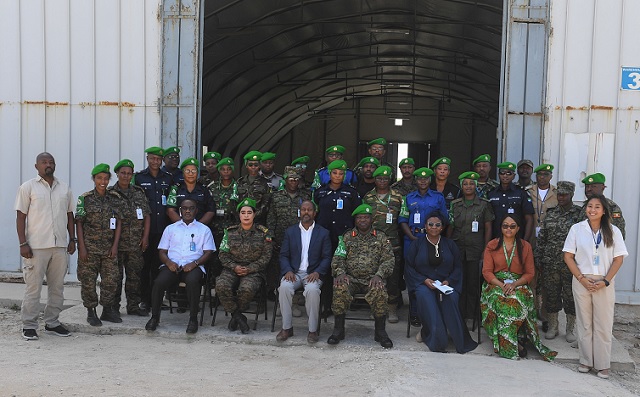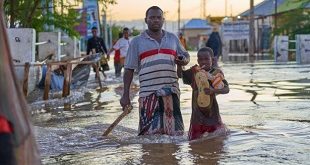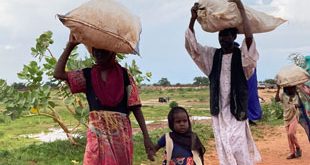
Mogadishu, Somalia | Xinhua | Some 35 officers serving with the African Union Transition Mission in Somalia (ATMIS) wrapped up a five-day training here Friday aimed at protecting human rights and promoting gender equality in peace support operations in the country.
The head of ATMIS Protection, Human Rights and Gender Division Omar Abdulle Alasow said the training was aimed at enhancing the observance of human rights in the current AU peace mission to enable them to better discharge their duties in Somalia.
“I urge you to utilize this knowledge and bolster your effectiveness and efficiency in delivering your tasks and cascade the knowledge from the training to the Somali security forces during the transition period,” Alasow told the officers during the closing ceremony. “As Civil-Military Cooperation (CIMIC) and gender officers, it is our duty to support the protection of civilians through continued mentoring of the Somali security forces and promoting community engagement, sensitization, awareness raising, advocacy, and specific activities.”
The training, which was held in Mogadishu, the capital of Somalia, gathered gender focal points and CIMIC officers from all the ATMIS Areas of Responsibility. The participants will now form a pool of trainers who will in turn train their counterparts and the Somali security forces on the promotion and protection of human rights, and gender equality, the AU mission said.
Thirty officers serving with #ATMIS have concluded a five-day training course on how to protect human rights and promote gender equality in #Peace Support Operations to enable them to better discharge their duties in #Somalia. Read more: https://t.co/UCNl5u6gLl pic.twitter.com/jLETQtHqff
— ATMIS (@ATMIS_Somalia) June 17, 2023
Sam Okiding, ATMIS force commander, said the promotion and protection of human rights is one of the core values of the mission, and urged the participants to translate the knowledge and skills gained during the training into actionable activities. Okiding also said the Protection, Human Rights and Gender Division plays a crucial role in ensuring that the mission’s planning and operations are conducted in compliance with international and regional obligations.
The course included sessions on gender in peace support operations, aspects of sexual and gender-based violence and conflict-related sexual violence, as well as sexual exploitation and abuse, and civilian casualty tracking.
 The Independent Uganda: You get the Truth we Pay the Price
The Independent Uganda: You get the Truth we Pay the Price


